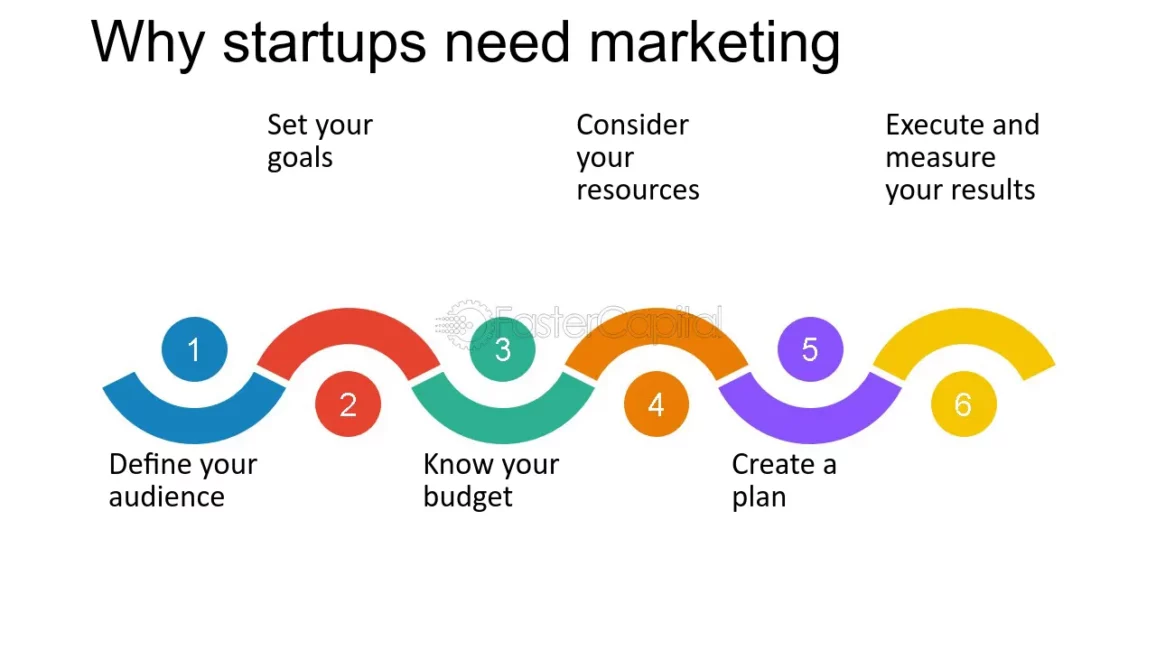Essential Startup Marketing Resources
Marketing is an essential component of startup success, and having access to the right resources can make a significant difference. The startup marketing resources discussed in this article, including online courses, blogs, tools, communities, podcasts, and incubators/accelerators, offer valuable insights, tools, and support to help you navigate the marketing landscape effectively.
By leveraging these resources, you can gain the knowledge, skills, and guidance necessary to create and implement effective marketing strategies for your startup. In this article, we will explore some essential startup marketing resources that can provide valuable insights, tools, and guidance to help your startup thrive.
Online Courses and Tutorials: Online courses and tutorials are an excellent way for startup founders and marketers to learn the fundamentals of marketing or gain expertise in specific areas.
Platforms like Udemy, Coursera, and HubSpot Academy offer a wide range of courses covering various marketing disciplines, such as digital marketing, content marketing, social media marketing, and more. These courses often provide practical insights, case studies, and real-world examples that can be directly applied to your startup’s marketing efforts.
Blogs and Publications: Blogs and publications dedicated to marketing are treasure troves of valuable information and industry insights. Websites like Neil Patel, Moz, HubSpot, and Buffer regularly publish informative blog posts, guides, and case studies that cover different aspects of marketing.
Subscribing to these blogs and following industry influencers on social media can help you stay updated on the latest trends, strategies, and tactics, enabling you to make informed decisions for your startup’s marketing campaigns.
Marketing Tools: A wide array of marketing tools is available to streamline and optimize your startup’s marketing activities. These tools can assist with various tasks, such as email marketing, social media management, SEO optimization, analytics, and more.
Popular marketing tools include Mailchimp, Hootsuite, Google Analytics, SEMrush, and Buffer. Take advantage of free trials or freemium options to explore different tools and find the ones that align with your startup’s needs and budget.
Startup Communities and Forums: Engaging with startup communities and forums is a great way to connect with fellow entrepreneurs, marketers, and industry experts. Platforms like Reddit, Quora, and LinkedIn groups offer dedicated spaces where you can seek advice, share experiences, and learn from others who have faced similar challenges.
Participating in discussions, asking questions, and sharing your insights can provide valuable networking opportunities and allow you to tap into a collective pool of knowledge.
Marketing Podcasts: Podcasts have gained popularity as a convenient way to consume valuable content on the go. There are several marketing podcasts hosted by industry experts that cover a wide range of marketing topics. Some notable examples include “Marketing School” by Neil Patel and Eric Siu, “The GaryVee Audio Experience” by Gary Vaynerchuk, and “The Growth Show” by HubSpot.
These podcasts offer in-depth interviews, actionable strategies, and valuable insights from experienced marketers, helping you stay inspired and informed.
Startup Incubators and Accelerators: Startup incubators and accelerators are programs designed to support early-stage startups in various aspects, including marketing. These programs often provide mentorship, networking opportunities, access to resources, and marketing guidance tailored to the specific needs of startups.
Well-known startup incubators and accelerators include Y Combinator, Techstars, and 500 Startups. Applying to and participating in these programs can significantly benefit your startup’s marketing efforts.
Marketing plays a crucial role in the success of any startup. It helps to build brand awareness, attract customers, and drive growth. However, for entrepreneurs and early-stage startups, navigating the complex world of marketing can be overwhelming. Fortunately, there are numerous resources available to help startups effectively plan, implement, and optimize their marketing strategies.
Read Also: How to Start a Business in Louisiana
Startup Marketing Services

Startup marketing services provide startups with the necessary expertise, resources, and strategies to navigate the complex world of marketing and achieve their business objectives.
From market research and branding to digital marketing and public relations, these services cover a wide range of essential marketing activities. By partnering with professional marketing agencies or consultants, startups can save time and resources while gaining access to valuable industry knowledge and networks.
BuyWith tailored strategies and data-driven approaches, startup marketing services help startups elevate their brand, drive customer acquisition, and ultimately succeed in the competitive business landscape.
This is where startup marketing services come into play, providing professional assistance and strategic guidance to help startups gain a competitive edge and achieve their business objectives.
Understanding Startup Marketing Services
Startup marketing services encompass a range of activities aimed at promoting a startup’s products or services, creating brand awareness, and driving customer acquisition. These services are typically offered by specialized marketing agencies or consultants who possess extensive experience working with startups and understand the unique challenges they face.
Key Components of Startup Marketing Services
Market Research and Strategy: A thorough understanding of the target market is essential for any startup. Marketing services begin with comprehensive market research, identifying target audiences, analyzing competitors, and uncovering market trends. Based on this research, a tailored marketing strategy is crafted, outlining the most effective channels and tactics to reach the target audience.
Branding and Positioning: A strong and distinct brand identity is crucial for startups to stand out in the market. Marketing services assist in developing a compelling brand story, creating a memorable logo, designing consistent visual elements, and defining the startup’s unique value proposition. This branding exercise helps startups establish a solid foundation for all their marketing efforts.
Digital Marketing: In the digital age, online channels play a significant role in reaching potential customers. Startup marketing services often focus on digital marketing strategies such as search engine optimization (SEO), social media marketing, content marketing, email marketing, and paid advertising.
These strategies leverage the power of digital platforms to increase brand visibility, drive website traffic, and generate leads.
Website Development and Optimization: A well-designed and user-friendly website is essential for startups to showcase their products or services and convert visitors into customers.
Startup marketing services assist in developing and optimizing websites, ensuring they are mobile-responsive, fast-loading, and optimized for search engines. This optimization increases the chances of attracting organic traffic and improving the overall user experience.
Public Relations and Media Outreach: Building credibility and gaining media exposure are critical for startups to gain trust and expand their reach. Marketing services help startups develop a strategic public relations (PR) plan, identify media opportunities, craft compelling press releases, and establish relationships with journalists and influencers. These efforts can result in valuable media coverage, raising the startup’s profile and enhancing its reputation.
Benefits of Startup Marketing Services
Expertise and Experience: Startup marketing services bring in-depth knowledge and experience in working with startups across various industries. They understand the unique challenges faced by startups and can tailor marketing strategies to address these specific needs. This expertise saves time and resources, allowing entrepreneurs to focus on their core competencies.
Cost Efficiency: Outsourcing marketing services can be more cost-effective for startups compared to hiring and maintaining an in-house marketing team. Startup marketing agencies often offer flexible pricing models that align with the startup’s budget and growth stage. This enables startups to access professional marketing services without incurring substantial expenses.
Scalability: As startups grow, their marketing needs evolve. Startup marketing services are flexible and adaptable, capable of scaling alongside the startup’s growth. They can adjust marketing strategies, implement new tactics, and explore innovative channels as the startup’s target audience expands or diversifies.
Measurable Results: Startup marketing services focus on data-driven strategies and performance metrics. They provide startups with insights into the effectiveness of their marketing efforts, track key performance indicators (KPIs), and make data-backed recommendations for improvement. This enables startups to measure their return on investment (ROI) and make informed decisions about future marketing initiatives.
In today’s highly competitive business landscape, startups face numerous challenges in establishing their brand, attracting customers, and driving growth.
Effective marketing strategies play a pivotal role in overcoming these hurdles and propelling startups towards success. However, with limited resources and expertise, it can be a daunting task for entrepreneurs to navigate the complex world of marketing.
Startup Marketing Expert
Startup marketing experts bring a wealth of knowledge and experience to the table, helping entrepreneurs navigate the complex world of marketing and drive business growth.
By leveraging their understanding of the startup landscape, identifying target audiences, building a strong brand identity, harnessing the power of content marketing, leveraging data and analytics, and staying agile, startup marketing experts provide startups with a competitive edge in crowded markets.
Understanding the Startup Landscape: A startup marketing expert possesses a comprehensive understanding of the unique challenges and opportunities presented within the startup landscape.
They recognize that startups often operate with limited resources, minimal brand recognition, and intense competition. With this knowledge, they strategize creative and cost-effective ways to maximize a startup’s visibility, generate leads, and convert them into loyal customers.
Developing a Holistic Marketing Strategy: Startup marketing experts emphasize the importance of developing a holistic marketing strategy that aligns with a startup’s goals, target audience, and available resources.
They employ a mix of traditional and digital marketing channels to create a cohesive brand presence across multiple touchpoints. By leveraging social media, content marketing, email campaigns, influencer partnerships, and other relevant tactics, they generate brand awareness and engage with potential customers.
Identifying the Target Audience: One of the crucial tasks of a startup marketing expert is identifying the target audience. They conduct thorough market research to understand the needs, preferences, and pain points of potential customers.
This helps them craft tailored messaging that resonates with the target audience and positions the startup as a valuable solution to their problems. Through precise targeting, they can optimize marketing efforts and maximize the return on investment.
Building Brand Identity: A startup marketing expert recognizes that a strong brand identity is a powerful asset for startups. They work closely with founders and stakeholders to define the brand’s core values, mission, and unique selling proposition (USP).
With a clear understanding of the brand’s essence, they develop a consistent visual identity, including logo design, color schemes, and typography. By effectively communicating the brand’s personality and value proposition, they cultivate trust and loyalty among customers.
Harnessing the Power of Content Marketing: Content marketing plays a pivotal role in startup success, and a startup marketing expert understands its significance. They craft compelling content that educates, entertains, and resonates with the target audience.
Whether it’s blog posts, videos, infographics, or podcasts, they create a content strategy that aligns with the startup’s goals and amplifies its online presence. Valuable and shareable content helps startups establish thought leadership, gain credibility, and drive organic traffic.
Leveraging Data and Analytics: Startup marketing experts are well-versed in the importance of data and analytics. They use various tools to track and measure marketing campaigns, customer engagement, and conversions.
By analyzing this data, they gain insights into the effectiveness of different marketing initiatives, enabling them to make data-driven decisions and refine strategies for optimal results. They continuously monitor key performance indicators (KPIs) to identify areas of improvement and capitalize on opportunities.
Staying Agile and Experimenting: In the ever-evolving startup landscape, a marketing expert understands the significance of agility and experimentation. They constantly adapt to changes in consumer behavior, industry trends, and emerging technologies.
By staying abreast of the latest marketing techniques, they experiment with new channels, tactics, and growth hacking methods. This willingness to adapt and take calculated risks enables startups to stay ahead of the curve and seize opportunities for growth.
Launching a startup is an exciting journey filled with potential and ambition. However, in a highly competitive landscape, even the most brilliant ideas can struggle to gain traction without effective marketing strategies.
That’s where startup marketing experts come in. These seasoned professionals possess a deep understanding of the dynamics of startup ecosystems, enabling them to craft impactful campaigns and propel businesses to success.
Startup Marketing Blog
Startup marketing blog is a critical component of startup success. By understanding your target audience, building a strong brand, utilizing various marketing channels, and continuously refining your strategies, you can create a powerful marketing plan that propels your startup to new heights. Embrace innovation, be agile, and stay focused on providing value to your customers, and you’ll be on your way to achieving sustainable growth and success.
Define Your Target Audience: Before diving into marketing tactics, it’s essential to clearly identify your target audience. Understanding their needs, preferences, and pain points will help you tailor your marketing efforts more effectively. Conduct market research, analyze customer data, and create buyer personas to get a comprehensive understanding of your ideal customers.
Build a Strong Brand Identity: A compelling brand identity sets your startup apart from the competition. Develop a unique value proposition and craft a brand story that resonates with your target audience. Consistency in messaging, visuals, and tone of voice across all marketing channels will help establish brand recognition and trust.
Create a Content Marketing Strategy: Content marketing is an effective way to engage with your audience and establish thought leadership in your industry. Create a content strategy that aligns with your target audience’s interests and pain points. Produce high-quality blog posts, videos, infographics, and social media content that educates, entertains, and provides value to your audience.
Leverage Social Media: Social media platforms offer a cost-effective way for startups to reach a wide audience. Identify the social media channels where your target audience is most active and develop a social media strategy accordingly. Engage with your followers, share valuable content, run targeted ads, and leverage influencers to expand your reach and build brand awareness.
Implement Search Engine Optimization (SEO): Optimizing your website for search engines is crucial for improving your online visibility and driving organic traffic. Conduct keyword research to identify relevant keywords and incorporate them into your website’s content, meta tags, and URLs. Focus on creating high-quality, shareable content that earns backlinks, improving your website’s search engine rankings.
Utilize Email Marketing: Email marketing allows you to nurture leads, build relationships with your audience, and drive conversions. Create a compelling email newsletter and encourage website visitors to subscribe. Provide valuable content, personalized offers, and exclusive updates to keep your subscribers engaged and interested in your startup.
Embrace Influencer Marketing: Influencer marketing can help startups gain exposure to a wider audience and build credibility. Identify influencers in your niche who have a significant following and align with your brand values. Collaborate with them to promote your products or services and leverage their influence to drive awareness and conversions.
Implement Growth Hacking Techniques: Growth hacking involves using creative and unconventional marketing strategies to achieve rapid growth. Experiment with different growth hacking techniques such as referral programs, viral marketing campaigns, or gamification to generate buzz around your startup and attract new customers.
Monitor Analytics and Refine Strategies: Regularly monitor key marketing metrics such as website traffic, conversion rates, social media engagement, and email open rates. Analyze the data to identify what strategies are working and what needs improvement. Refine your marketing strategies based on these insights to continually optimize your campaigns for better results.
In the highly competitive world of startups, having a solid marketing strategy is crucial for success. Startups often operate with limited resources, making it essential to make every marketing effort count.
Read Also: How to Start a Business in Wisconsin
Startup Marketing Checklist

In the fast-paced world of startups, effective marketing can make or break a new venture. Developing a robust marketing strategy is crucial for creating brand awareness, attracting customers, and driving growth.
However, with limited resources and tight budgets, startups need to be strategic and focused in their marketing efforts. To help you navigate the complex landscape of startup marketing, we have compiled an essential checklist to ensure your startup is on the right track to success.
Define Your Target Audience: Before embarking on any marketing activities, it is essential to identify and understand your target audience. Develop buyer personas by conducting market research, analyzing demographics, psychographics, and behavior patterns. Understanding your audience will help you tailor your messaging, choose the right channels, and effectively reach your potential customers.
Set Clear Marketing Goals: Clearly define your marketing objectives and set measurable goals. Whether it’s generating leads, increasing brand awareness, or driving website traffic, establish key performance indicators (KPIs) to track your progress. Having specific goals will help you stay focused and assess the effectiveness of your marketing efforts.
Craft a Compelling Value Proposition: A strong value proposition communicates the unique value your startup offers to customers. It should clearly highlight the problem your product or service solves, its benefits, and why it stands out from competitors. Ensure your value proposition is clear, concise, and resonates with your target audience.
Build an Engaging Website: A well-designed and user-friendly website is crucial for establishing credibility and converting visitors into customers. Optimize your website for search engines (SEO) to improve its visibility and drive organic traffic. Create compelling and relevant content, incorporate clear calls-to-action, and make sure your website is mobile-responsive.
Leverage Content Marketing: Content marketing is a powerful tool for startups to educate, engage, and build trust with their target audience. Develop a content strategy that includes blog posts, videos, infographics, and social media content. Share valuable and informative content that addresses the pain points of your audience and positions your startup as an industry thought leader.
Embrace Social Media: Social media platforms offer an effective way to connect with your audience, promote your brand, and drive engagement. Choose the platforms that align with your target audience and industry, and develop a consistent posting schedule. Engage with your followers, respond to comments, and actively participate in relevant industry conversations.
Implement Search Engine Optimization (SEO): Optimizing your website for search engines can significantly increase your online visibility and drive organic traffic. Conduct keyword research to identify relevant terms and incorporate them naturally into your website content. Focus on on-page optimization, meta tags, title tags, and image alt tags. Build quality backlinks to improve your search engine rankings.
Invest in Paid Advertising: While organic marketing strategies are essential, paid advertising can provide a quick boost to your startup’s visibility. Consider running targeted campaigns on platforms such as Google Ads, social media ads, and display ads. Set a budget, define your target audience, and track the performance of your ads to optimize your ROI.
Utilize Email Marketing: Email marketing remains one of the most effective ways to nurture leads and build customer relationships. Build an email list by offering valuable content and incentives.
Segment your list based on customer interests and preferences, and create personalized and targeted email campaigns. Track open rates, click-through rates, and conversions to refine your email marketing strategy.
Monitor, Analyze, and Adapt: Regularly monitor and analyze your marketing efforts to understand what’s working and what needs improvement. Utilize analytics tools to track website traffic, conversion rates, and campaign performance. Use these insights to make data-driven decisions, iterate your strategies, and adapt to the changing needs of your audience.
Successfully marketing a startup requires a systematic approach and a keen understanding of your target audience. By following this comprehensive startup marketing checklist, you can lay a strong foundation for your marketing efforts and increase your chances of success.
Read Also: Best Practices in Management of Breeders for Maximum Performance




